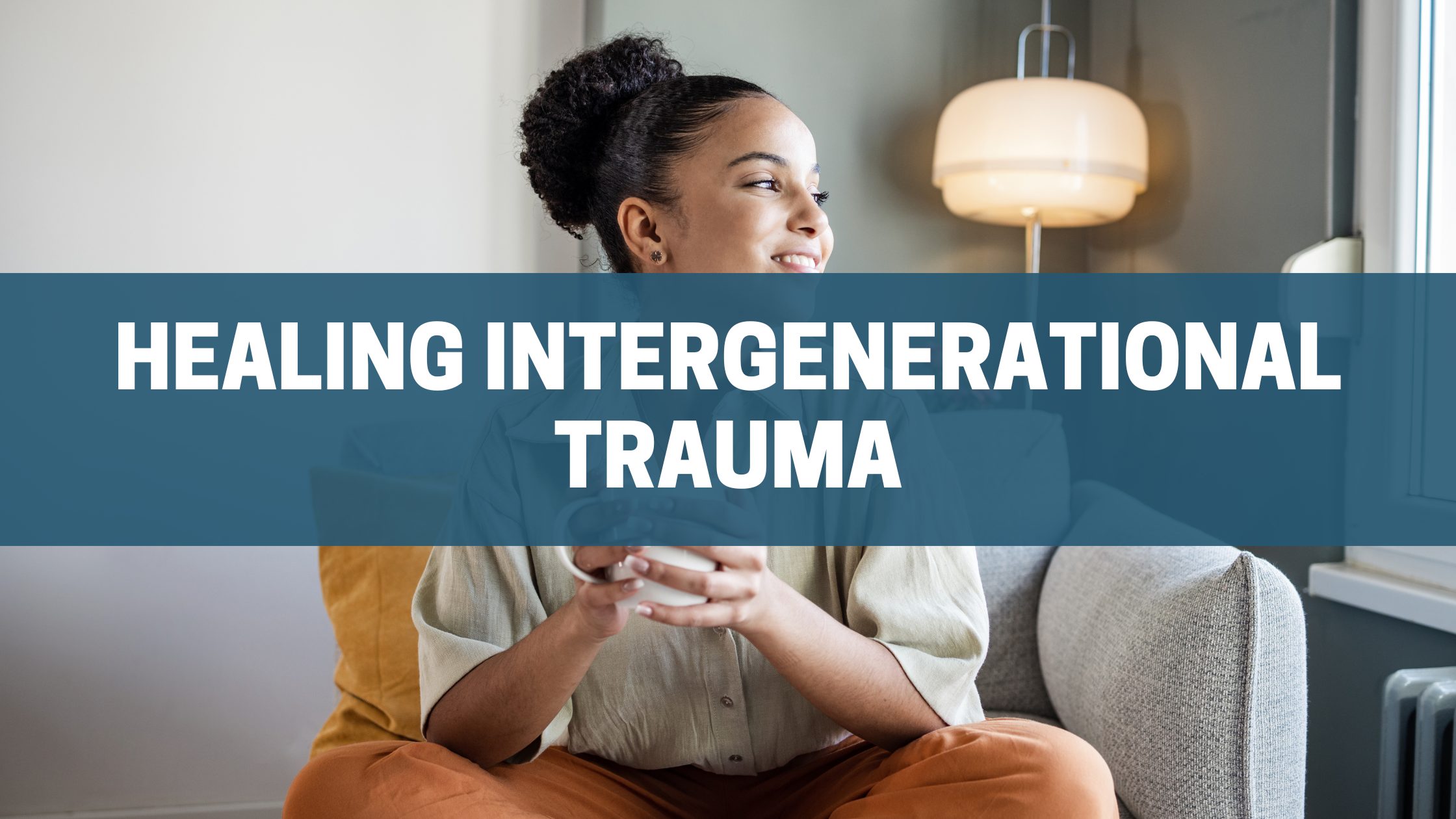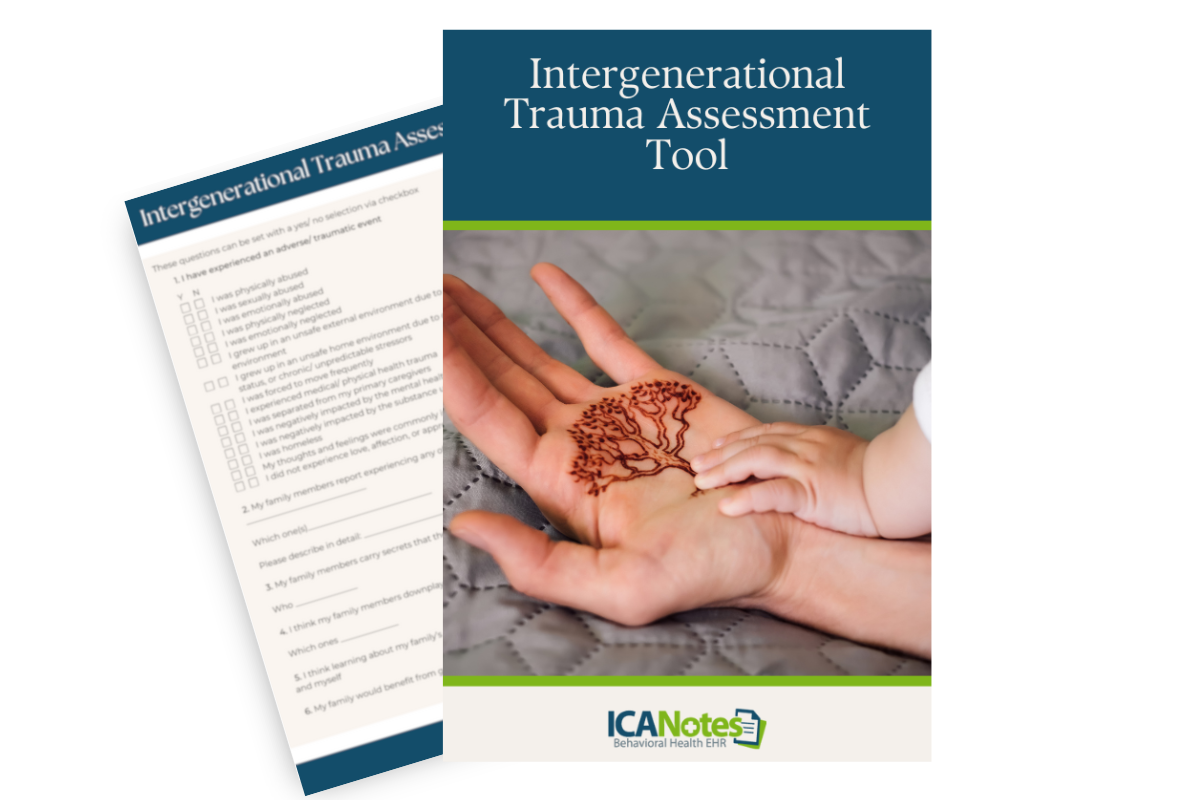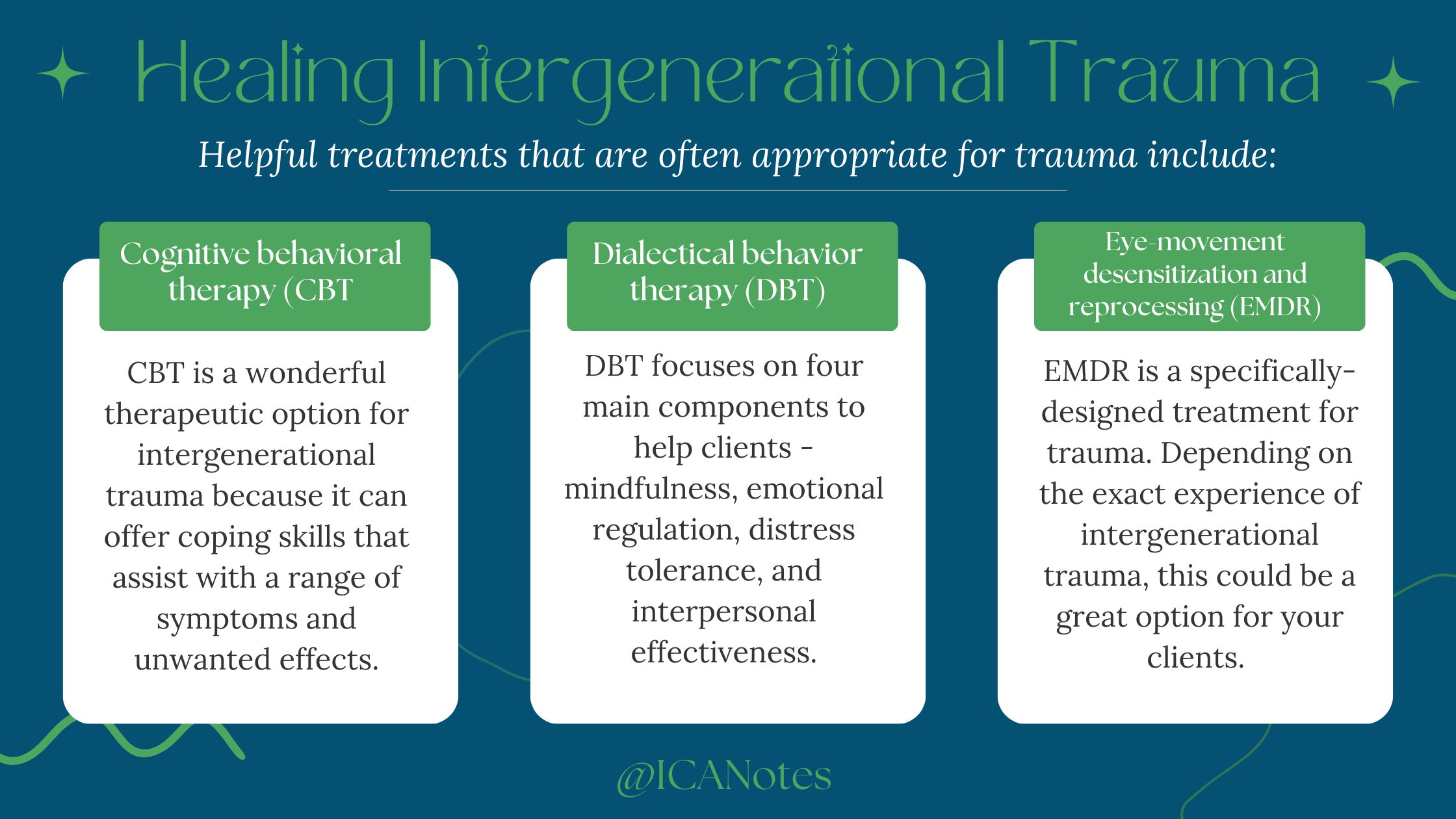
Healing Intergenerational Trauma
Intergenerational trauma, sometimes called transgenerational trauma, is a very impactful state that affects numerous people throughout the world, even if they are unaware of the outcomes. This form of trauma can lead to powerfully negative mental, physical, and spiritual consequences. When mental health professionals are aware of the contributors and mindful of the appropriate interventions, treatment can reduce symptoms and begin the process of healing intergenerational trauma.
What is Intergenerational Trauma?
Intergenerational trauma is the name for the unwanted effects that past trauma has on generations descended from the person who originally endured the trauma. Intergenerational trauma can impact countless generations of people if their symptoms are not actively managed.
As an example, imagine two families with multiple generations of children. In the first family, there is a young girl who experiences sexual abuse. That child grows up dealing with the unwanted outcomes of the abuse and has a child of her own. Though that child has never directly experienced trauma, the impact of the trauma on her mother greatly affects her life.
Her mother may have struggled with bonding during infancy and early childhood, which could have resulted in poor attachments for the child. Perhaps the mother dealt with peripartum depression, anxiety, or symptoms of post-traumatic stress disorder (PTSD) that made caring for her child more difficult. From there, that child grows to have children of her own, who are each affected by the trauma of their grandmother and its influence on their grandmother.
In the second family, there is no significant trauma. The family carries on through the generations, and like other families, will note their share of distress and dysfunction, but because there is not a layer of intergenerational trauma, the family members will be in a better position to manage their symptoms and overcome their adversities.
Free Download: Intergenerational Trauma Assessment Tool

Intergenerational Trauma Symptoms
Because intergenerational trauma is such a significant force in a family’s direction, it has the ability to create many symptoms. Some of these symptoms will be the direct result of trauma, while others are indirect results of long-term dysfunction.
Common effects of intergenerational trauma include:
- Anxiety
- Depression
- Substance use disorders
- Behavioral addictions, like gambling, excessive shopping
- Anger, aggression, and violence
- Personality disorders, like borderline personality or narcissistic personality disorder
- Poor relationships
- Inability to work or maintain employment
- Poor school performance
- Poor communication and conflict
- Poor sleep
- Poor physical health
The list is extensive, but the main takeaway here is that trauma is incredibly problematic, but intergenerational trauma is so negative because of its pervasive influence on so many people.
Intergenerational Trauma Assessment
Before a clinician can begin the process of healing intergenerational trauma, they must accurately assess it. Too often, though, providers skim or gloss over the trauma questions during their early evaluations. Maybe these questions are too uncomfortable or too distressing to the client.
In either case, the questions must be asked, despite the discomfort. Complete trauma assessment goes beyond questions, like “Is there a history of trauma?” A good trauma evaluation gets into detail, provides pertinent examples, and extends the focus to include family members from older generations.
At times, clients may be quick to identify an uncle with a drinking problem or a grandparent who “wasn’t right,” but they may not understand the entire story. These people may have endured trauma and coped in negative ways that the family could not understand or comprehend. Families create narratives that fit their perceptions, even if they are inaccurate.
Even if you cannot gather clear evidence of trauma during your evaluation process, there could be indicators that tell you to keep assessing during treatment.

Healing Intergenerational Trauma
Some of the best treatments for intergenerational trauma are going to the same treatments frequently used for trauma and PTSD symptoms. These treatments can target the immediate impact of trauma on the identified patient in the present.
Helpful treatments that are often appropriate for trauma include:
- Cognitive behavioral therapy (CBT). CBT is a wonderful therapeutic option for intergenerational trauma because it can offer coping skills that assist with a range of symptoms and unwanted effects. By investigating the connection between your client’s thoughts, feelings, and behaviors you will help them understand the root of their symptoms. Even better, you will teach them methods and measures to begin shifting their perceptions of themselves and the people around them. You can show them another way through life and other options of thinking and acting.
- Dialectical behavior therapy (DBT). As a branch grown from the tree of CBT, DBT focuses on four main components to help clients - mindfulness, emotional regulation, distress tolerance, and interpersonal effectiveness. Learning these skills will help your clients gain more control over their experience. Rather than simply reacting to life around them, they can act with purpose and direction, no longer driven by their emotions.
- Eye-movement desensitization and reprocessing (EMDR). EMDR is a specifically-designed treatment for trauma. Depending on the exact experience of intergenerational trauma, this could be a great option for your clients. If you’re interested in finding out more about EMDR, try a training or two to see if the treatment resonates with you. Becoming certified in the practice could be an important step in your therapy career.
Above all others, integrating some form of family therapy into your healing of intergenerational trauma will be essential. This trauma is something that affects the entire family, so the entire family should be active in treatment, even though some may be reluctant.
Family therapy can:
- Engage family members in a unified healing process
- Provide needed education regarding the impact of transgenerational trauma
- Build self-monitoring skills to improve members’ ability to recognize the influence of trauma
- Shift communication skills towards being more assertive, rather than aggressive or passive
- Increase prevention strategies to avoid future traumas from occurring
- Manage symptoms of depression, anxiety, attention deficit/ hyperactivity disorder (ADHD), attachment disorders, and other mental health conditions
- Empower family members to identify and overcome trauma
- Create family cohesion and higher functioning levels
Final Thoughts on Healing Intergenerational Trauma
Where other mental health conditions frequently make themselves known clearly, intergenerational trauma can often hide in plain sight, eluding clients and therapists alike. With solid information, a complete and thorough assessment, and sound therapeutic interventions, progress can be made in the healing of intergenerational trauma. When therapists address intergenerational trauma directly, everyone wins.
Start a Free Trial
About the Author

Eric Patterson, MSCP, NCC, LPC
Eric Patterson, MSCP, NCC, LPC, is a professional counselor who has been working for over a decade to help children, adolescents, and adults in western Pennsylvania reach their goals and improve their well-being.
Along the way, Eric worked as a collaborating investigator for the field trials of the DSM-5 and completed an agreement to provide mental health treatment to underserved communities with the National Health Service Corp.
Sources
- American Psychological Association. (2023). Intergenerational Trauma.
- Trauma-Informed Care Implementation Resource Center. (2024). What is Trauma-Informed Care?
- University at Buffalo. (2024). What is Trauma-Informed Care?
